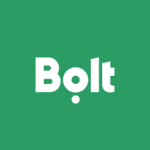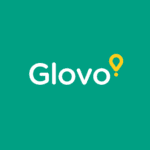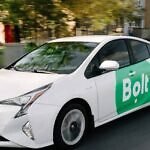Bolt has introduced electric tricycles in Lagos, marking the ride-hailing company’s latest foray into sustainable transport across West Africa. Beginning in May, 25 of these electric vehicles will hit the streets of Lagos, made possible through a partnership with SGX Mobility, a Lagos-based electric mobility startup.
The launch extends Bolt’s current tricycle services already active in Jos and Uyo, but this is the first time it’s bringing electric versions into Nigeria’s commercial capital. Riders can now find electric tricycles as an option within the Bolt app, offering a cleaner, quieter alternative to petrol-powered kekes.
Each vehicle comes with a price tag of ₦3.2 million (about $1,996), but drivers won’t have to pay that upfront. A down payment of ₦208,000 ($130) secures a lease, with the balance spread over 18 to 24 months. Weekly instalments cost ₦32,000 ($20), while a monthly plan stands at ₦156,000 ($97). Drivers are also expected to swap out batteries daily at ₦6,500 ($4.06), which Bolt claims is around half the daily fuel cost for traditional tricycles.
“This launch is about building an ecosystem, not just introducing vehicles,” said Caroline Wanjihla, Bolt Africa’s spokesperson. “We’re betting on driver economics. EV tricycles have lower running costs. And with our lease model, drivers can own their vehicles in two years, while saving on fuel and maintenance from day one.”
The electric tricycles can reportedly run for up to 12 hours per charge and reach speeds of up to 80km/h. A battery swap station, located in Eagle Square, Surulere, will allow drivers to quickly exchange batteries, reducing downtime and maintaining consistent daily earnings, according to SGX’s Corporate Finance Manager, Ayo Mustapha.
Lease Model Under Spotlight
Bolt’s lease-to-own offer enters a space already fraught with scepticism. Platforms like Moove and LagRide have faced backlash over rigid repayment schedules and high default rates, with many drivers complaining of repossessions and overwork. Bolt is hoping to distinguish itself with more manageable payments, lower entry barriers, and a 15% commission cut—significantly less than the 25% often charged elsewhere.
“With Lagride and Moove, we are looking at more expensive vehicles. The tricycles are much cheaper, and the payment is flexible,” said Zankyang Duniya, Operations Manager at Bolt. “We are also tweaking the model to allow for 15% commission as opposed to 25% charged on vehicles.”
The initiative couldn’t have come at a more pressing time. Soaring petrol prices have already pushed many cycle operators toward alternatives like compressed natural gas (CNG). However, infrastructure gaps and high conversion costs have slowed widespread adoption. Bolt’s electric option offers a fresh angle, promising zero emissions and eventual ownership.
For now, Bolt says it is observing how drivers and riders respond. If things don’t go as planned, the company is ready to modify the lease terms or slow down deployment. But if the experiment proves successful, Bolt could soon replicate this model in other parts of Nigeria and across markets like Ghana, Uganda, Tanzania, and Tunisia.
Lagos, known for its traffic snarls and environmental challenges, might just be the proving ground Bolt needs to drive electric mobility mainstream in Africa.













3 replies on “Bolt Tests Electric Tricycles in Lagos with 15% Driver Cut”
[…] directly with well-known logistics companies like GIG Logistics, Sendbox, Kwik Delivery, Uber, Bolt, Chowdeck, and others. These brands already have strong networks and loyal customers. Many also […]
[…] State Governor Francis Nwifuru has launched EBOCAB, a new ride-hailing service designed to improve transportation, create jobs, and boost safety in the state. The governor […]
[…] Lagos State House of Assembly has summoned five major ride-hailing companies — Uber, Bolt, Indrive, Rida, and LagRide — for a public hearing over alleged labour violations. The hearing, […]